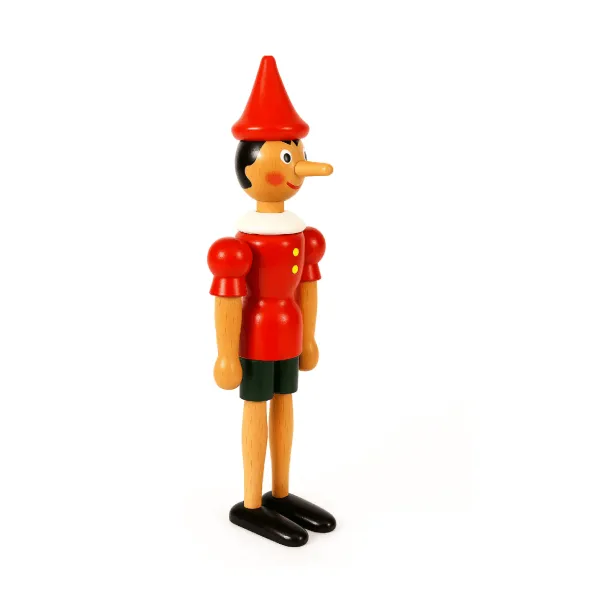 Future tense
Future tense
Lesson thirty-six

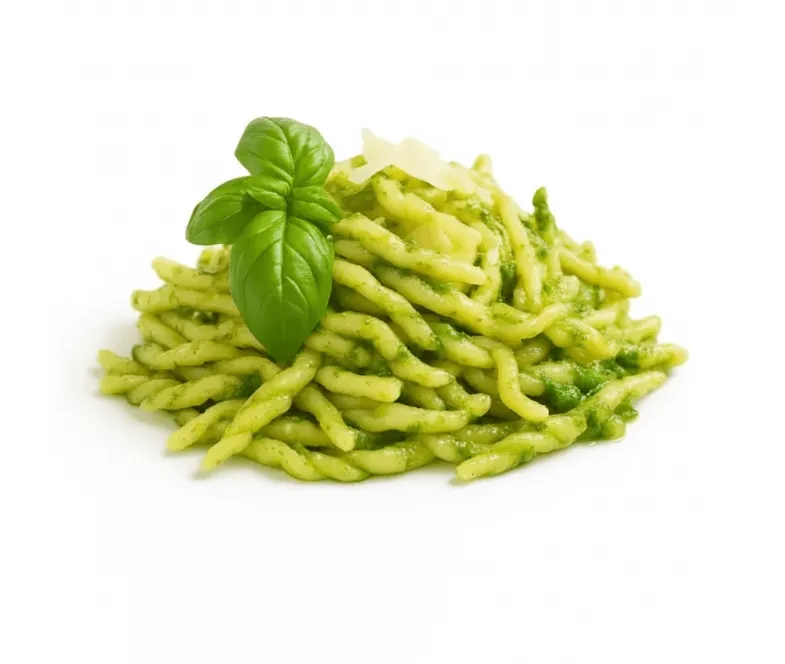
Lesson thirty-five
Adverbs are used to provide more information about verbs, adjectives, or other adverbs. Unlike adjectives, which modify nouns, adverbs in Italian primarily modify verbs.
Much like adding -ly to form adverbs in English, Italian forms adverbs by taking the feminine form of the adjective (usually ending in -a) and adding -mente.
Chiaro becomes Chiaramente
Clear becomes Clearly
Felice becomes Felicemente
Happy becomes Happily
Veloce becomes Velocemente
Fast becomes Quickly
In Italian, adverbs usually follow the verb they modify.
Guidare velocemente è pericoloso.
Driving fast is dangerous.
Loro sono sposati felicemente da anni.
They have been happily married for years.
Il professore spiega le cose chiaramente.
The professor explains things clearly.
For adjectives ending in -le or -re, drop the final -e before adding -mente.
Facile becomes Facilmente
Easy becomes Easily
Gentile becomes Gentilmente
Kind becomes Kindly
Amabile becomes Amabilmente
Amiable becomes Amiably
Ho risolto il problema facilmente.
I solved the problem easily.
Lui mi ha gentilmente aiutata a sollevare la scatola.
He kindly helped me lift the box.
La madre si prende amorevolmente cura dei figli.
The mother lovingly takes care of the children.
Some adverbs do not follow the regular pattern and are formed irregularly.
Buono becomes Bene
Good becomes Well
Parli italiano molto bene.
You speak Italian very well.
Mia nonna cucina bene.
My grandmother cooks well.
Cattivo becomes Male
Bad becomes Badly
L'esame di ieri è andato male.
The exam yesterday went badly.
Oggi mi sento male.
Today, I feel unwell.
Use più (more) or meno (less) before the adverb to form the comparative.
Puoi parlare più lentamente?
Can you speak more slowly?
Dovresti prendere questa questione più seriamente.
You should take this matter more seriously.
Finiremo più velocemente se mi dai una mano.
We will finish more quickly if you give me a hand.
Studio meno attentamente se non sono concentrata.
I study less attentively if I am not concentrated.
Some adverbs have irregular comparative forms, just like in English.
Bene becomes Meglio
Well becomes Better
Lui parla italiano meglio di me.
He speaks Italian better than I do.
Si studia meglio in un posto tranquillo.
One studies better in a quiet place.
Male becomes Peggio
Bad becomes Worse
Io cucino peggio di lui.
I cook worse than him.
Lui gioca a calcio peggio degli altri.
He plays soccer worse than the others.
Anche/Pure
Too/Also
Sono occupata anche il giovedì.
I am busy on Thursdays too.
Lui parla italiano e anche inglese.
He speaks Italian and also English.
Anche a me piace leggere.
I also like to read.
Anch'io voglio venire con voi.
I also want to come with you.
Neanche/Neppure/Nemmeno
Not Even
Neanche Roberto ha una macchina.
Not even Roberto has a car.
Neanche lei ha visto questo film.
She hasn't seen this movie either.
Non sono mai stata a Napoli. Neanche io.
I have never been to Naples. Neither have I.
Abbastanza
Enough
Lei parla italiano abbastanza bene.
She speaks Italian well enough.
Oggi fa abbastanza caldo.
Today it's hot enough.
Ho fatto una torta, sono abbastanza felice del risultato.
I made a cake, I am quite happy with the result.
Piuttosto
Rather
Sono piuttosto delusa da questo libro.
I am rather disappointed by this book.
Sono piuttosto stanca stasera.
I am quite tired tonight.
Piuttosto che non fare niente, preferisco provare e fallire.
Rather than do nothing, I prefer to try and fail.
Quasi
Almost
È quasi inverno.
It's almost winter.
Ho quasi finito di prepararmi.
I'm almost ready.
Sono quasi le sette di sera.
It's almost seven in the evening.
Così
So
Non è così che si prepara la carbonara.
That's not how you make carbonara.
Questa parola si scrive così.
This word is spelled like this.
È così o non è così?
Is it like this or not?
Basta così!
Enough
Com'è stato l'esame? Così così.
How did the exam go? So-so.
Questa città è così bella.
This city is so beautiful.
Lui è così forte che ha sollevato la scatola da solo.
He is so strong that he lifted the box by himself.
Questa serie è così noiosa.
This series is so boring.
Purtroppo
Unfortunately
Purtroppo non posso venire, sono occupata.
Unfortunately, I can't come, I am busy.
Purtroppo non sono stata assunta.
Unfortunately, I was not hired.
Entrambi/Entrambe
Both
Entrambi i miei fratelli sono sposati.
Both my brothers are married.
Entrambe le mie sorelle sono sposate.
Both my sisters are married.
Tutti e due sono entrambi bei libri.
Both of them are both good books.
Ecco
Here is
Ecco Anna.
Here is Anna.
Ecco qui il suo caffè.
Here is your coffee.
Ecco, è arrivato l'autobus.
Here, the bus has arrived.
Ecco perché non sono d'accordo con te.
That's why I disagree with you.
In qualsiasi momento
Any time
Se hai bisogno d'aiuto, puoi chiamarmi in qualsiasi momento.
If you need help, you can call me at any time.
These adverbs are used to tell the place where something happens.
Sotto
Under
Il gatto dorme sotto al tavolo.
The cat is sleeping under the table.
Mio figlio crede che ci siano i mostri sotto al letto.
My son believes that there are monsters under the bed.
La nave è passata sotto al ponte.
The ship passed under the bridge.
Sopra
Above/On
Ho messo il libro sopra allo scaffale.
I put the book on the shelf.
Ho messo una giacca sopra la camicia.
I put a jacket over the shirt.
L'aereo vola sopra la città.
The plane is flying above the city.
Nell'appartamento sopra al nostro non abita nessuno.
In the apartment above ours, no one lives.
Accanto
Next to
Accanto a casa mia c'è un panificio.
Next to my house, there is a bakery.
La mia ragazza è seduta accanto a me.
My girlfriend is sitting next to me.
Accanto al letto c'è un armadio.
Next to the bed, there is a wardrobe.
Vicino a
Close to
Abito vicino al fiume.
I live close to the river.
Brescia è vicino a Milano.
Brescia is close to Milan.
Lei è seduta vicino a me.
She is sitting close to me.
Qui vicino
Near here
Mia zia abita qui vicino.
My aunt lives near here.
C'è un parco qui vicino.
There is a park near here.
La stazione della metro è qui vicino.
The metro station is near here.
Lontano
Far
Questo posto è lontano.
This place is far.
L'appartamento è troppo lontano dal centro.
The apartment is too far from the center.
Indietro
Back
Sono tornata indietro perché avevo dimenticato le chiavi.
I went back because I had forgotten the keys.
Ormai è tardi per tornare indietro.
Now it's too late to go back.
Avanti
Forward
Non si può andare avanti così.
We can't go on like this.
Sono andata avanti con la serie senza di te.
I continued with the series without you.
Davanti a
In front of
Davanti alla casa c'è un giardino.
In front of the house, there is a garden.
Ti aspetto davanti alla stazione.
I am waiting for you in front of the station.
Il posto davanti al mio è libero.
The seat in front of mine is free.
Dietro di/a
Behind
Lei cammina dietro di lei.
She walks behind her.
Dietro la casa c'è un grande orto.
Behind the house, there is a large garden.
Lei è seduta dietro di me.
She is sitting behind me.
Qua/Qui
Here
Vieni qua, devo dirti una cosa.
Come here, I need to tell you something.
Qui c'è un bel parco dove passeggiare.
Here, there is a nice park to walk in.
Non è molto lontano da qui.
It's not very far from here.
Là/Lì
There
Vai là.
Go there.
Là c’è una stazione degli autobus.
There is a bus station over there.
Ho parcheggiato la macchina là.
I parked the car there.
Vedi quella casa lì?
Do you see that house there?
Quassù
Up here
Da quassù si vede tutta la città.
From up here, you can see the whole city.
La vista è bellissima da quassù.
The view is beautiful from up here.
Quaggiù
Down here
Quaggiù ci sono i negozi, mentre lassù ci sono i ristoranti.
Down here, there are shops, while up there, there are restaurants.
Quaggiù in cantina è molto umido.
Down here in the cellar, it's very damp.
Giù
Down
Vieni giù dall'albero, rischi di farti male.
Come down from the tree; you might get hurt.
Vado giù in cantina a prendere una cosa.
I'm going down to the cellar to get something.
Laggiù
Down there
La casa è laggiù, in fondo alla via.
The house is down there, at the end of the street.
Ho lasciato le scarpe laggiù in fondo alle scale.
I left the shoes down there at the bottom of the stairs.
Lassù
Up there
Guarda lassù sull'albero, c'è un gufo.
Look up there in the tree; there is an owl.
Lassù nel cielo ci sono molte stelle.
Up there in the sky, there are many stars.
Fuori
Outside
Fuori sta piovendo.
It's raining outside.
Oggi fa freddo fuori.
It's cold outside today.
Vado fuori a camminare.
I'm going outside for a walk.
Dentro
Inside
Vieni dentro, sta piovendo fuori.
Come inside; it's raining outside.
La torta cuoce dentro al forno.
The cake is baking inside the oven.
La macchina è dentro il garage.
The car is inside the garage.
All’interno
Inside
All’interno del bar la musica era troppo forte.
Inside the bar, the music was too loud.
All'interno del ristorante faceva caldo.
It was warm inside the restaurant.
All’esterno
Outside
C'è una lunga coda all'esterno del locale.
There is a long line outside the restaurant.
All'esterno della casa c'è un giardino.
Outside the house, there is a garden.
Nei pressi
Nearby
Abito nei pressi della stazione.
I live nearby the station.
Nei pressi di casa mia ci sono molti negozi.
Nearby my house, there are many shops.
Intorno / attorno
Around
Io e lei ci troveremo intorno alle sei.
She and I will meet around six.
Tornerò intorno alle nove.
I will be back around nine.
Intorno alla casa c'è uno steccato.
Around the house, there is a fence.
Intorno al paese c'è una foresta.
Around the village, there is a forest.
Sai se c'è qualche ristorante qui intorno?
Do you know if there is any restaurant around here?
Via
Away
Mi ha chiesto di andare via.
He asked me to go away.
Sono stata via da casa per un mese.
I have been away from home for a month.
La festa è noiosa, andiamo via.
The party is boring; let's go away.
Contro
Against
Ho sbattuto la testa contro il muro.
I hit my head against the wall.
Ho votato contro la legge.
I voted against the law.
Non so cos'hai contro di me.
I don't know what you have against me.
Sono contro il maltrattamento degli animali.
I am against animal cruelty.
Oltre a
Besides/In addition to
Oltre a te, non conosco nessuno qui.
Besides you, I don't know anyone here.
Oltre all'italiano, parlo anche il francese.
In addition to Italian, I also speak French.
Oltre
Beyond/More than
C'erano oltre mille persone al concerto.
There were over a thousand people at the concert.
Il video è stato visto da oltre diecimila persone.
The video has been seen by over ten thousand people.
Io e lei stiamo assieme da oltre un anno.
She and I have been together for over a year.
These adverbs are used to tell when something happens.
In questo momento
At this moment
In questo momento sono occupata.
At this moment, I am busy.
Ho molte cose da fare in questo momento.
I have many things to do at this moment.
Subito
Immediately
Devo andare al bagno, torno subito.
I need to go to the bathroom; I'll be back immediately.
Quando ti sei sentita male, ho chiamato subito un dottore.
When you felt unwell, I immediately called a doctor.
Ho bisogno di parlarti subito.
I need to talk to you right away.
Subito dopo
Immediately after
Subito dopo la laurea ho trovato un lavoro.
Immediately after graduation, I found a job.
Subito dopo l'incidente ero sconvolta.
Immediately after the accident, I was shocked.
Ora/Adesso
Now
Ora sono le tre.
It's three o'clock now.
Ora sta piovendo.
It's raining now.
Ora devo andare al lavoro.
I have to go to work now.
Più tardi
Later
In questo momento sono occupata, ti chiamo più tardi.
I'm busy at the moment; I'll call you later.
Più tardi uscirò con i miei amici.
Later, I will go out with my friends.
Credo che più tardi pioverà.
I think it will rain later.
Presto
Early
Stamattina mi sono svegliata presto.
This morning, I woke up early.
Sono tornata a casa presto dalla festa.
I came home early from the party.
Tardi
Late
È quasi mezzanotte, è tardi.
It's almost midnight; it's late.
È troppo tardi per rimediare al danno.
It's too late to fix the damage.
Siamo arrivati tardi e abbiamo perso l'autobus.
We arrived late and missed the bus.
A breve
Soon
A breve inizieremo l’imbarco.
We will start boarding soon.
Il film comincerà a breve.
The movie will start soon.
A breve l'aereo inizia l’atterraggio.
The plane will start landing soon.
Sempre
Always
I miei amici sono sempre in ritardo.
My friends are always late.
Lei è sempre stata gentile con me.
She has always been kind to me.
Vado sempre in autobus al lavoro.
I always take the bus to work.
Quasi sempre
Almost always
Il treno è quasi sempre affollato a quest'ora.
The train is almost always crowded at this time.
Faccio quasi sempre colazione al bar.
I almost always have breakfast at the bar.
Spesso
Often
Vado spesso a mangiare al ristorante.
I often go to eat at the restaurant.
Nevica spesso in inverno.
It often snows in winter.
Non vedo spesso
I don't often see
Raramente/Di rado
Rarely
Io e Paolo ci sentiamo di rado.
Paolo and I rarely communicate.
Io e la mia ragazza litighiamo di rado.
My girlfriend and I rarely argue.
Di tanto in tanto
From time to time
Fumo solo una sigaretta di tanto in tanto.
I smoke only a cigarette from time to time.
Di tanto in tanto vado a trovare mia nonna.
From time to time, I visit my grandmother.
Ogni tanto
Every now and then
Mangio dolci solo ogni tanto.
I eat sweets only every now and then.
Ogni tanto vado a correre al parco.
Every now and then, I go running in the park.
A volte/Alle volte
Sometimes
A volte mi dimentico le cose.
Sometimes, I forget things.
A volte mi piace stare da solo.
Sometimes, I like to be alone.
Quasi mai
Almost never
Non vado quasi mai in questa zona della città.
I almost never go to this part of the city.
Io e il mio fidanzato non litighiamo quasi mai.
My boyfriend and I almost never argue.
Mai
Never
Non sono mai stata a Roma.
I have never been to Rome.
Non avevo mai mangiato un piatto così buono.
I had never eaten such a good dish.
Non ho mai visto quel film.
I have never seen that film.
Già
Already
Sei già stato in Italia? No, mai.
Have you already been to Italy? No, never.
Ho già mangiato.
I have already eaten.
Ho già visto questo film.
I have already seen this movie.
Già, è proprio così
Yes, that's right
Già, è proprio così.
Yes, that's right.
Ultimamente
Lately
Ultimamente non sto bene.
Lately, I haven't been feeling well.
Ultimamente faccio spesso brutti sogni.
Lately, I often have bad dreams.
Hai visto qualche bel film ultimamente?
Have you seen any good movies lately?
Ancora
Still/Yet
Sei ancora giovane, hai solo trent'anni.
You are still young; you are only thirty years old.
Mio figlio sta ancora dormendo.
My son is still sleeping.
Non ho ancora finito di fare i compiti.
I haven't finished my homework yet.
Ho ancora fame.
I am still hungry.
In the passato prossimo, mai, ancora, and già must be placed between the verb to have and the participle.
Di nuovo
Again
Ho già visto questo film, ma lo voglio vedere di nuovo.
I have already seen this movie, but I want to watch it again.
Lei mi piace, vorrei vederla di nuovo.
I like her; I would like to see her again.
Di solito
Usually
Di solito ceno alle otto.
I usually have dinner at eight.
Che cosa fai di solito nel tempo libero?
What do you usually do in your free time?
Una volta
Once
Una volta le cose erano molto diverse.
Once, things were very different.
Una volta non c'era l'elettricità.
Once, there was no electricity.
C'era una volta.
Once upon a time.
Due volte
Twice
Vado in palestra due volte in settimana.
I go to the gym twice a week.
Molte volte
Many times
Ho visto questo film molte volte.
I have seen this movie many times.
Qualche volta
Sometimes
Dovresti venire a correre con me qualche volta.
You should come running with me sometimes.
Prima di
Before
Prima di andare al lavoro faccio colazione.
Before going to work, I have breakfast.
Ho finito di mangiare prima di te.
I finished eating before you.
Prima
First
Prima faccio colazione e poi vado al lavoro.
First, I have breakfast, and then I go to work.
Pensa prima di dire cose stupide.
Think first before saying foolish things.
Poi
Then
Prima studio, e poi gioco ai videogiochi.
First, I study, and then I play video games.
Io e Chiara siamo andati al cinema e poi abbiamo cenato assieme.
Chiara and I went to the cinema, and then we had dinner together.
Mi sono svegliato e poi, ho preso un caffè.
I woke up, and then I had coffee.
Dopo
After
Dopo l'estate c’è l'autunno.
After summer comes autumn.
Dopo mangiato mi lavo i denti.
After eating, I brush my teeth.
Dopo lavoro sono andata al bar.
After work, I went to the bar.
Note: Use dopo di with nouns and names.
Antonio è arrivato dopo di te.
Antonio arrived after you.
Prima o poi
Sooner or later
Prima o poi riuscirò ad avere tempo per viaggiare.
Sooner or later, I will manage to find time to travel.
Prima o poi capirai di aver sbagliato.
Sooner or later, you will understand that you were wrong.
Appena
Just/Immediately
Ho appena mangiato.
I have just eaten.
La lezione è appena finita.
The lesson has just ended.
Ho appena incontrato Eleonora al bar.
I just met Eleonora at the bar.
Allora
Then
Allora non c'era l'elettricità.
Back then, there was no electricity.
Allora le cose erano diverse.
Back then, things were different.
Allora, hai deciso cosa facciamo stasera?
So, have you decided what we're doing tonight?
Da allora
Since then
Da allora non ho più visto Elena.
I haven't seen Elena since then.
Io e lui abbiamo litigato e da allora non ci parliamo più.
He and I had an argument, and since then, we don't talk anymore.
Ormai
By now/Now
Ormai è tardi per rimediare.
By now, it's too late to fix it.
Ormai hai vent'anni; sei un adulto.
Now you're twenty; you're an adult.
 Future tense
Future tense
Lesson thirty-six
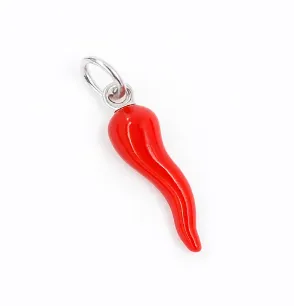 Imperative
Imperative
Lesson thirty-seven
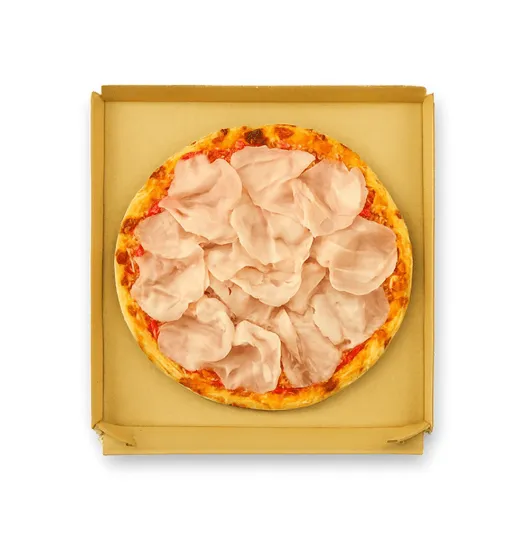 Conditional
Conditional
Lesson thirty-eight
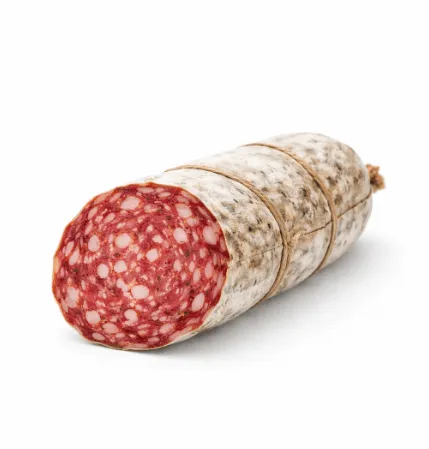 Indefinites
Indefinites
Lesson thirty-nine
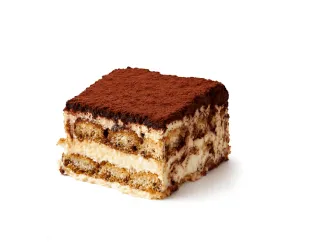 Diminutives
Diminutives
Lesson forty
 Relative pronouns
Relative pronouns
Lesson forty-one